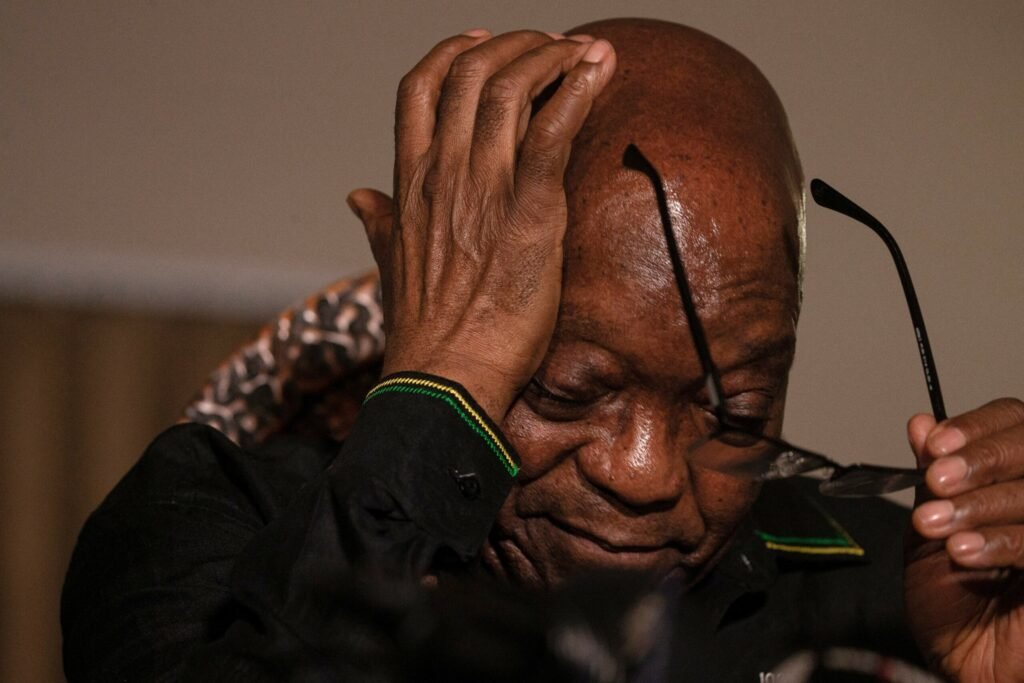Jacob Zuma, the former president of South Africa, has been disqualified from participating in the upcoming general election in May.
The electoral commission, IEC, has not provided a specific reason for this decision, but it’s widely speculated that his conviction and imprisonment for contempt of court in 2021 are the grounds for his disqualification.
Zuma’s endorsement of the new uMkhonto we Sizwe (MK) party has raised concerns within the ruling African National Congress (ANC), leading to his suspension from the party.
Despite his removal from the ANC, Zuma considers himself the rightful successor to the party’s revolutionary legacy.

The ANC attempted to have the electoral body deregister the MK party, but their request was denied. Zuma, who served as president from 2009 to 2018 amid corruption allegations, has been actively involved in leading the MK party’s campaign.
However, objections were raised against his candidacy for the National Assembly, prompting the electoral commission to take action.
In South Africa, voters elect members of the National Assembly, and the leader of the party with the majority typically becomes the country’s president.
“In the case of former President Zuma, yes, we did receive an objection, which has been upheld,” said electoral commission head Mosotho Moepya on Thursday.
“The party that has nominated him has been informed,” Mr Moepya told journalists.
Mr. Zuma has until April 2nd to appeal the decision. Nhlamulo Ndlhela, spokesperson for the MK party, stated they are evaluating the objection’s validity and intend to lodge an appeal.
In 2021, the former president was sentenced to 15 months in prison for contempt of court, rendering him ineligible to run for election according to the constitution, which disqualifies individuals with prison sentences exceeding 12 months.
Additionally, Zuma faces corruption charges related to a multi-billion-dollar arms deal from the 1990s, during his tenure as vice-president. Despite the ruling, the IEC clarified that the MK party remains eligible to participate in the May 29th election.
Recent opinion polls suggest a potential decline in the ANC’s vote share, possibly falling below 50% for the first time since South Africa’s democratic era began in 1994. The MK party, particularly popular in Zuma’s home region of KwaZulu-Natal, could play a significant role in this shift









